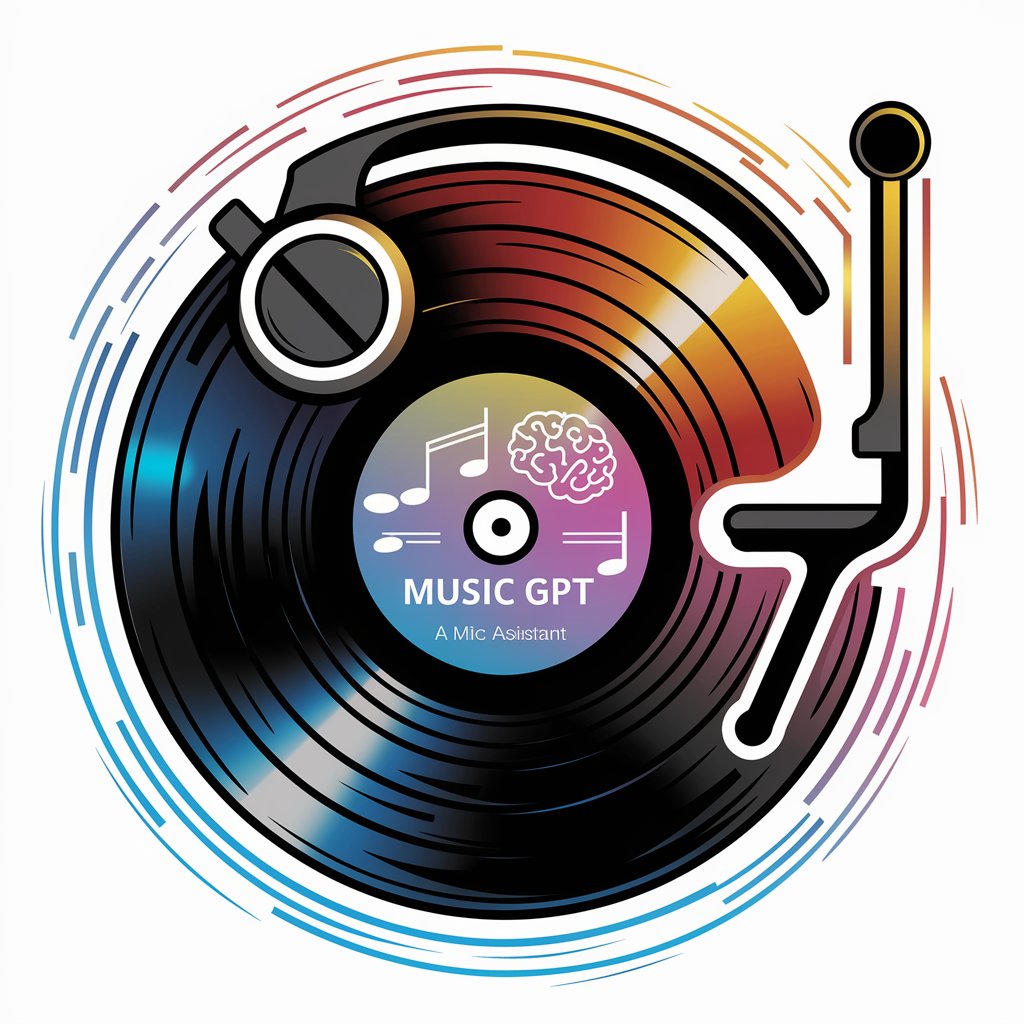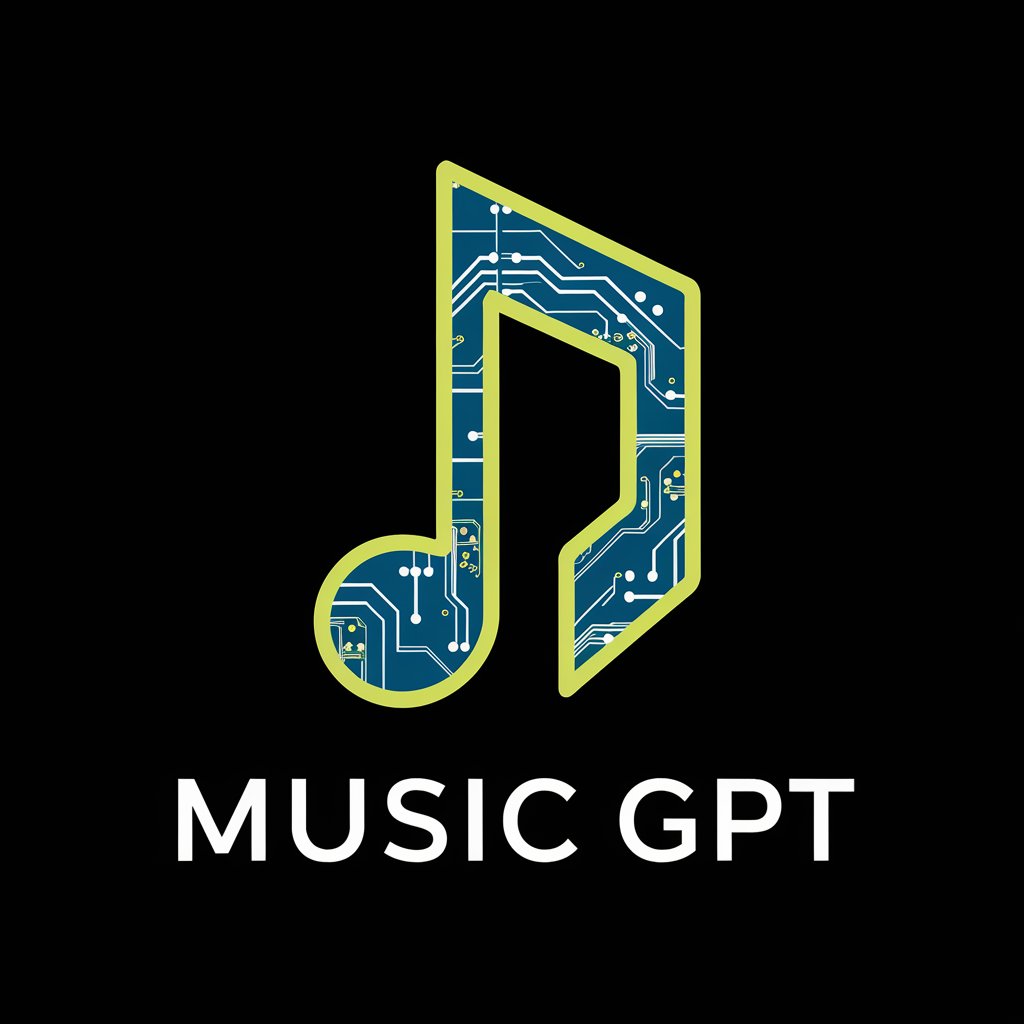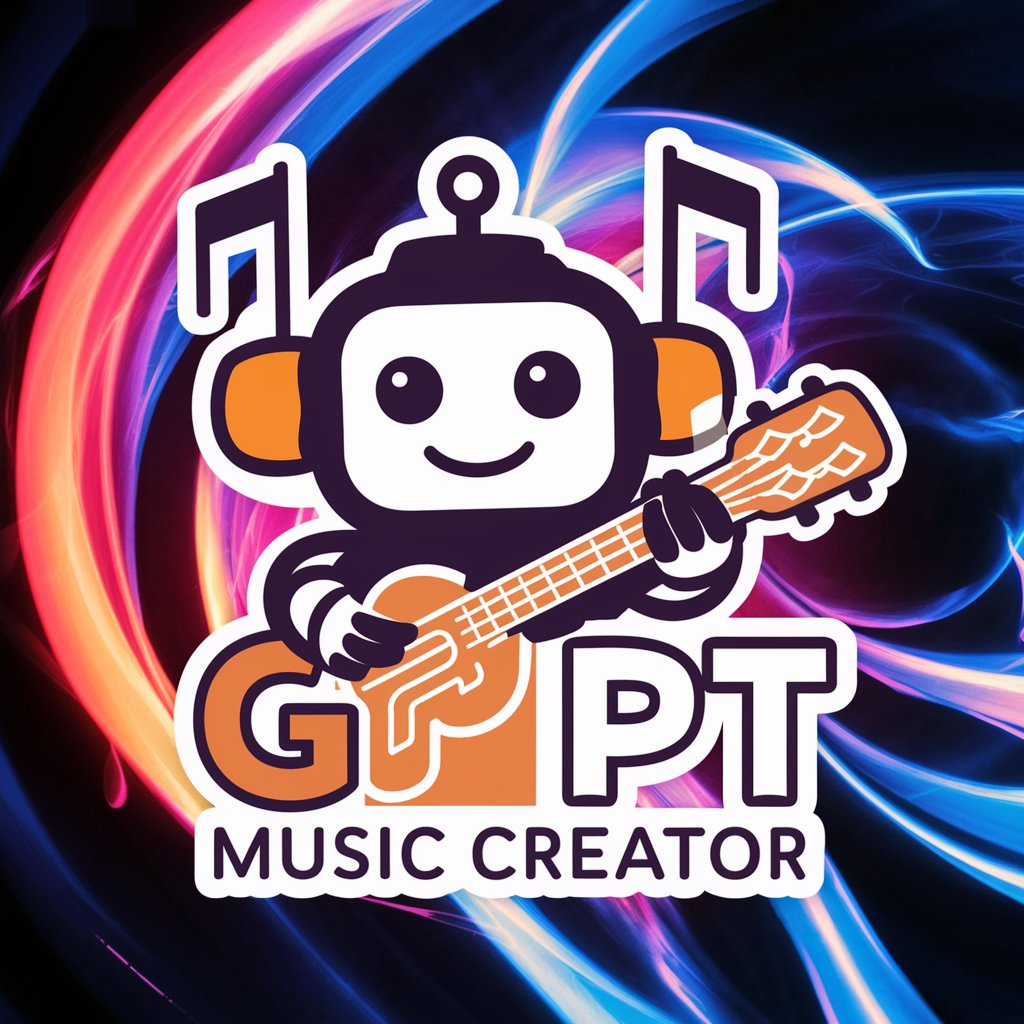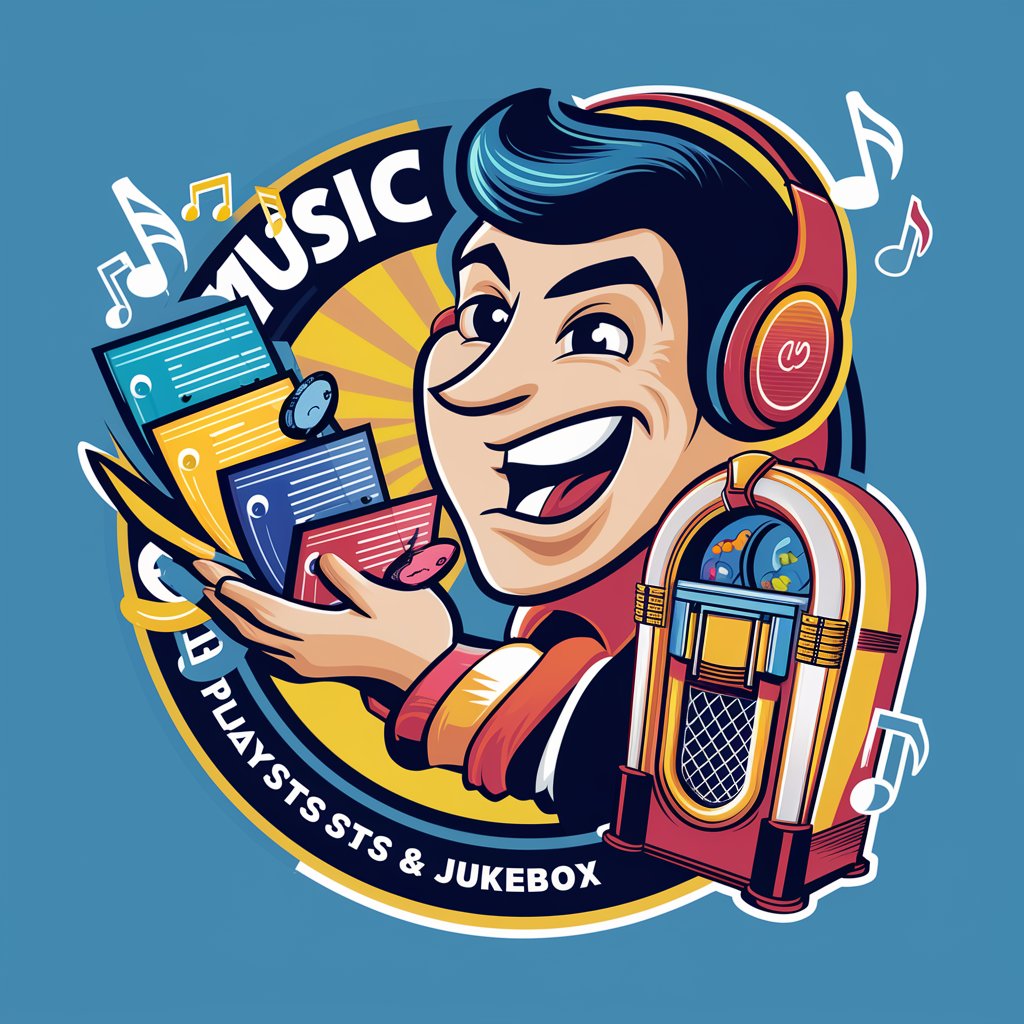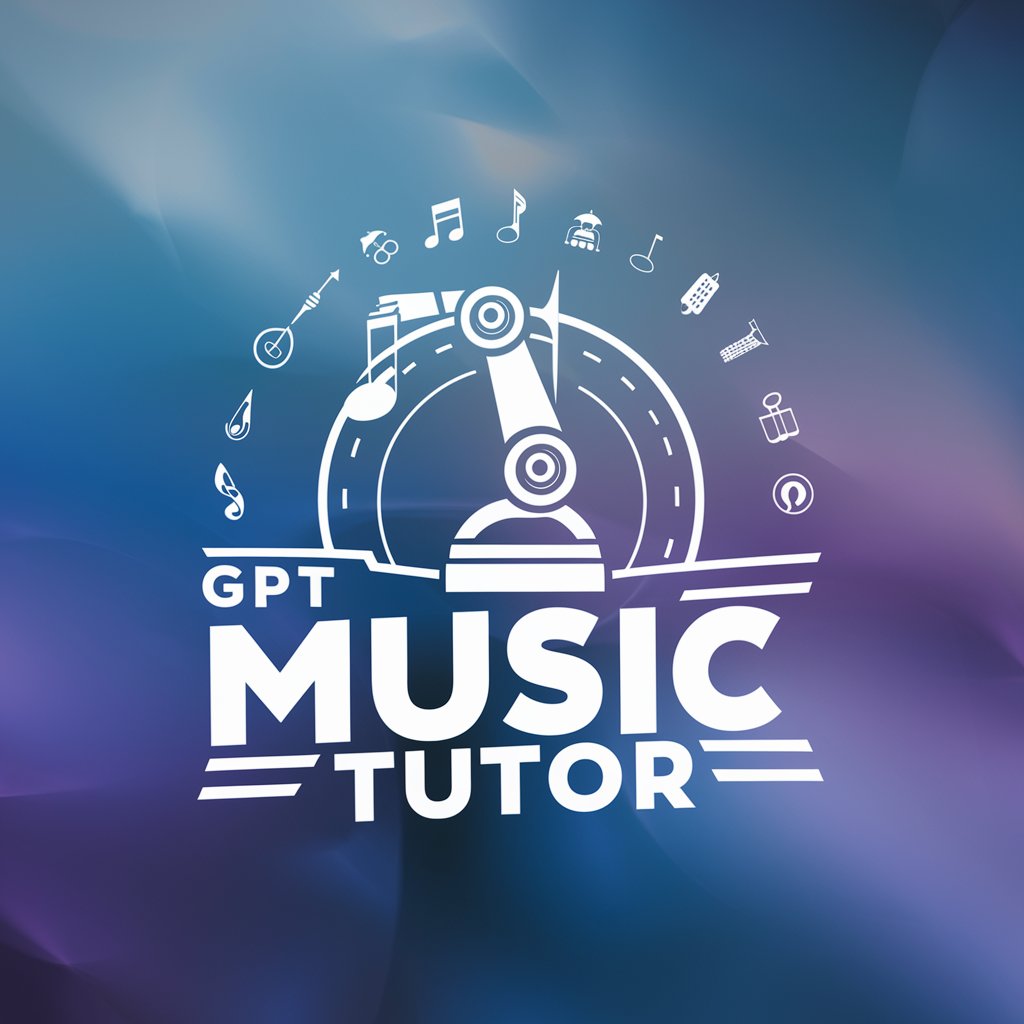
Music GPT - music assistant for detailed insights.

Welcome to Music GPT, your guide through the world of music! How can I assist you today?
AI-powered music insights at your fingertips.
Tell me about the evolution of jazz.
What's the impact of the Beatles on music?
Explain the significance of hip hop in cultural movements.
Who are the pioneers of electronic music?
Get Embed Code
Introduction to Music GPT
Music GPT is a specialized version of OpenAI's ChatGPT that is designed to provide in-depth insights into music genres, artists, bands, albums, and the evolution of music over time. It is built to serve music enthusiasts, researchers, students, and anyone interested in the intersection of music and culture. The main purpose of Music GPT is to offer detailed, informative, and engaging content about music, helping users explore various music-related topics, from historical music movements to modern trends and music theory. For example, a user might inquire about the influence of jazz on modern pop music. Music GPT would provide a detailed response, tracing the roots of jazz, its development over the decades, and its integration into pop music, citing specific artists and songs that exemplify this fusion. Another scenario could involve a user researching the impact of a specific band like The Beatles on the counterculture of the 1960s. Music GPT would deliver an analysis, covering socio-political factors, album releases, lyrical themes, and the band's stylistic evolution. Powered by ChatGPT-4o。

Main Functions of Music GPT
Music History Exploration
Example
Explaining the evolution of rock music from the 1950s to the present day.
Scenario
A music history student needs to write a paper on the development of rock music. Music GPT can provide a timeline of significant events, key artists, and their contributions, along with the socio-political context that shaped each era.
Artist and Genre Analysis
Example
Analyzing the influence of Bob Dylan's songwriting on modern folk music.
Scenario
A journalist writing an article on modern folk music wants to understand the foundational influence of artists like Bob Dylan. Music GPT offers a breakdown of Dylan's lyrical style, his influence on subsequent generations of songwriters, and examples of artists who have drawn from his work.
Music Theory and Composition Guidance
Example
Describing the concept of 'modal interchange' in music theory.
Scenario
A beginner music composer is looking to expand their understanding of music theory to enhance their compositions. Music GPT explains 'modal interchange' with examples of popular songs that use the technique and how it can be applied in different genres.
Cultural and Societal Impact Analysis
Example
Discussing how hip-hop emerged as a voice for marginalized communities.
Scenario
A cultural studies researcher is exploring how different music genres reflect societal issues. Music GPT provides a detailed analysis of hip-hop's origins, its role as a form of protest and storytelling, and its evolution in addressing social justice topics.
Personalized Music Recommendations
Example
Suggesting bands similar to Radiohead based on their experimental rock style.
Scenario
A user looking to discover new music asks for recommendations similar to Radiohead. Music GPT suggests artists and bands like Thom Yorke, Tame Impala, or Alt-J, providing context on why these recommendations align with Radiohead's style.
Ideal Users of Music GPT Services
Music Enthusiasts
Individuals passionate about music who are eager to learn more about different genres, artists, and musical movements. Music enthusiasts benefit from Music GPT's deep dives into music history, detailed analysis of artist discographies, and the exploration of music's cultural impact.
Music Researchers and Academics
Researchers, students, and academics focusing on musicology, cultural studies, or related fields. They use Music GPT for its ability to provide comprehensive insights, historical contexts, and analysis of music theory and its influence on culture.
Journalists and Writers
Journalists and writers who cover music-related topics for articles, blogs, or books. Music GPT can help them gather detailed background information, analyze trends, and understand the impact of music on society, which is crucial for creating informed and engaging content.
Musicians and Composers
Aspiring and professional musicians seeking to understand music theory, composition techniques, and gain insights into different styles. Music GPT offers explanations of theoretical concepts, practical advice on composition, and examples from diverse genres.
Cultural and Social Historians
Historians focusing on the cultural and social dynamics influenced by music. Music GPT helps them by connecting musical trends with historical events and providing comprehensive overviews of how music reflects and shapes societal changes.

How to Use Music GPT
1
Visit yeschat.ai for a free trial without login, no need for ChatGPT Plus.
2
Explore the tool by entering detailed music-related queries, from genre analysis to artist comparisons, or general music knowledge.
3
For deeper research or projects, use advanced queries to gain insights on music history, theory, or cultural impact.
4
Ask for recommendations on albums, genres, or artists, tailoring your inquiry to preferences like era or mood.
5
Use Music GPT for academic or creative purposes such as composing essays, exploring genres, or understanding the evolution of music styles.
Try other advanced and practical GPTs
Home STYLE with Bree
AI-Powered Style Transformations
Urban Green Thumb
Cultivate Anywhere, AI-Powered Gardening

MM AI Trade Mentor
Empowering Traders with AI

mm...food!
AI-powered Culinary Creation

MM; Contexte théorique
Empowering Your Thesis with AI

Storrytelling business coach
Craft Persuasive Business Narratives with AI

MetaPhoto
AI-Powered Visual and Text Creation

Wise Film Choices Critic
AI-powered cinematic insights at your fingertips.

Nameoji
Turn Text into Emotion with AI

Local Ghost Guide
History Meets Hauntings: Explore the Past!

Prompt Evaluator
Optimizing ChatGPT Prompts with AI-Powered Insights

English Writing Evaluator & Refiner
AI-powered naturality in English writing.

Music GPT Q&A
What is Music GPT?
Music GPT is an AI-powered assistant that specializes in music genres, artists, albums, and the history and cultural impact of music. It offers detailed analysis and insights for music enthusiasts, students, and researchers.
How can Music GPT help with academic research?
Music GPT can assist with academic research by providing detailed historical insights on musical movements, artist influences, and the cultural significance of various genres. It can also help in comparing trends and analyzing the evolution of music in different contexts.
Can Music GPT offer music recommendations?
Yes, Music GPT can provide personalized music recommendations based on preferences such as genre, era, mood, or specific artists. It offers a comprehensive understanding of music trends and artistic styles.
Is Music GPT suitable for music theory analysis?
Music GPT can explain basic music theory concepts and analyze the structure of songs or albums. It's useful for understanding the harmonic and rhythmic elements of different music styles, though it doesn’t generate music itself.
What are common use cases for Music GPT?
Music GPT can be used for music exploration, academic writing, creative inspiration, genre analysis, and cultural studies related to music. It's a versatile tool for music lovers and scholars alike.
